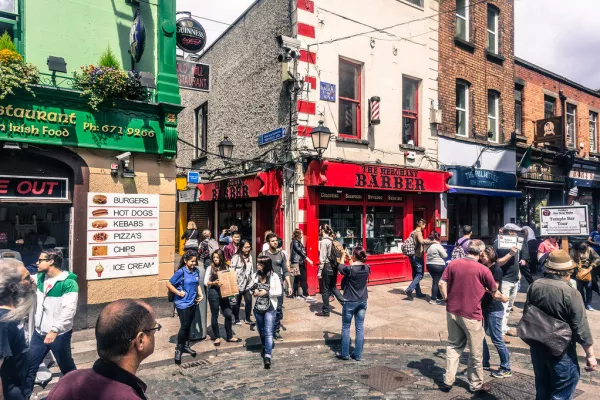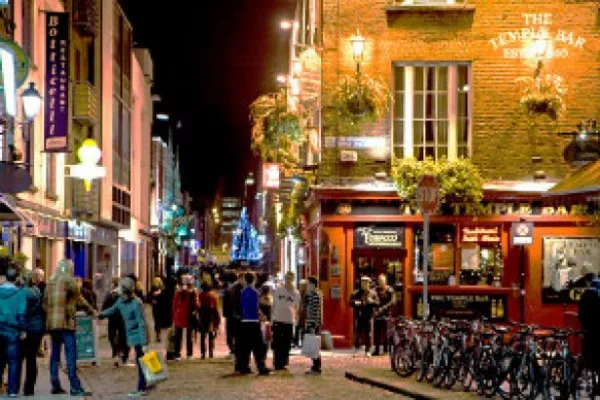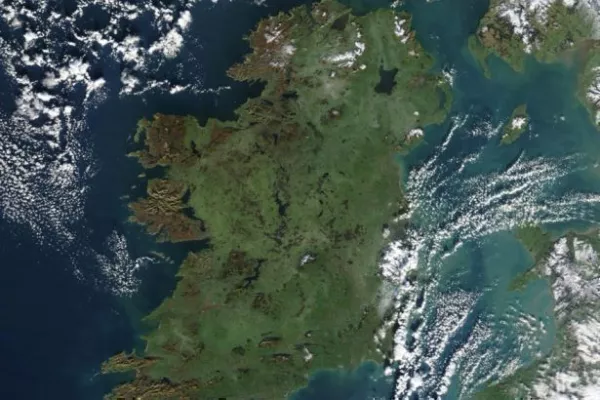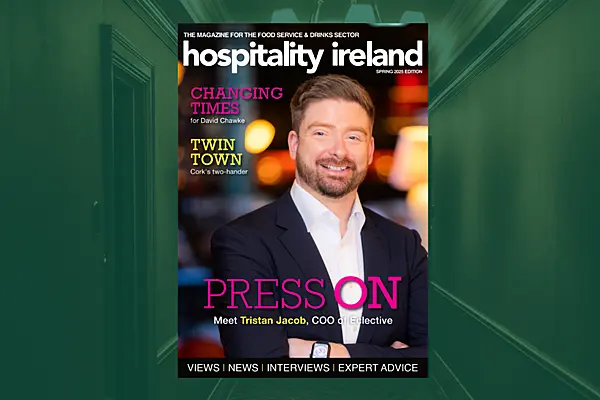It's time for prayers, Irish restaurant owner Padraic Og Gallagher says, describing the prospect of Brexit with one word: “disaster.”
About 40 per cent of customers at Gallagher’s Boxty House in Dublin’s tourist district, Temple Bar, come from the UK. Now, with the pound plunging, he’s worried.
“I just had the first growth in seven years and now, Oh God, do I have to go through this again?” said Gallagher, 55, who has been serving boxty, a traditional Irish potato-bread dish, in the area since 1989. “The English are the cream - they eat, they drink, they have fun.”
The worry across Temple Bar, crammed with pubs, eateries and tourists, captures the concern gripping the European tourism industry in the wake of the UK's vote to exit the European Union. Each year, UK globetrotters - the EU's second-biggest international travel spenders after the Germans - splash about €39 billion abroad. Spain, France and Ireland are among their top five destinations.
The prospect of fewer traveling Brits has pushed down airline, hotel and leisure shares. Thomas Cook Group has plunged about 15 per cent since the referendum. EasyJet fell the most in 12 years on Monday after warning that Brexit will hurt earnings for the rest of the summer as demand for travel wanes, and British Airways owner IAG lowered its 2016 profit target hours before the result of the referendum was known.
While the pound recovered some of its losses on Tuesday and Wednesday, it is still more than 7 per cent weaker versus Europe’s common currency since Britain’s voting booths opened on June 23. Sterling sank to a more than two-year low of 83.80 pence per euro on June 27, when it also touched $1.3121, the weakest level since 1985.
The UK currency was a gauge of sentiment throughout the referendum campaign and its record decline versus the dollar in the immediate aftermath of the vote reflected the ripples spreading across markets worldwide as a result of Brexit. The Post Office Travel Money, the largest such service provider in the UK, says its sales fell 15 percent on Monday compared with the same day last year.
With such trends emerging, many countries in the EU, where tourism accounts for 5 per cent of the gross domestic product, are bracing for fewer UK visitors.
“They’ve been coming here since the sixties; they spend the most and own summer homes here,” said Josep Francesc Valls, a lecturer at ESADE Business School in Spain, the top destination for Brits last year. “I’m expecting a decline in visitor numbers of up to 5 per cent for Spain alone.”
English expat Steve Hook, who runs a bar in Benalmadena, a coastal town in Andalusia in Spain, is watching nervously as sterling craters.
"Our customers are mostly British; a weaker pound is not good news,” he said. “While it’s still early days, the concern is that those who haven’t booked their holidays yet might reconsider. I know I would.”
Paris Summer
Neighbouring France is concerned, too. The British are the second-largest tourist group for the French capital, and the biggest for Disneyland Paris. Although hopeful that France will continue to lure Brits, “for the short term, the drop in the pound is worrying,” said Thomas Deschamps, head of economic analysis at the Paris Tourism Office. “They tend to stay in nice four-to-five star hotels, dine in fancy restaurants. We don’t foresee a fabulous summer here in Paris. ”
Worries about Brits staying home comes after a bumper year for UK visitors in countries such as Greece, where tourism accounts for about 19 percent of the economy. The pound’s tumble is likely to hit both the number of arrivals and the amount they spend, the Greek tourism industry association SETE said on Monday. Greek revenue from British tourists rose by more than 30 percent last year as arrivals grew almost 15 percent.
Penny Conscious
In Portugal, “there’s concern about the rising prices of services and products in euros for the UK market,” the Pestana Hotel Group, which owns hotels, golf courses and casinos in the southern European country said. “That can indeed harm, in our particular case, the flow of tourists that arrive in Portugal.”
For now, there are no signs of mass cancellations from UK travellers, and not everyone is worried.
“The British love their port wine too much to give up on this pleasure,” Francisco Franco Afonso, founder of Lisbon-based wine tour guide company VenhaVinho.com, said. “The UK continues to be our top market. This is going to be the best year for Portugal’s tourism sector.”
Back in Dublin, Gallagher is wary. He says UK travellers are acutely sensitive to currency swings, which may hurt the business he’s rebuilding after Ireland’s financial crisis.
“From 2009 to 2014, the English were not coming, because of the currency. They have started coming back in the last two years - the British are back,” said Gallagher, sitting at the bar of his restaurant. “They are penny conscious, they know their pound.”
The vote’s impact may only filter through in the fall, once Brits have taken vacations booked before the referendum. Against that backdrop, Gallagher urges a quick Brexit to end the uncertainty surrounding the issue.
“Or just go and hold another referendum, ” he said. “And vote properly.”
News by Bloomberg, edited by Hospitality Ireland









